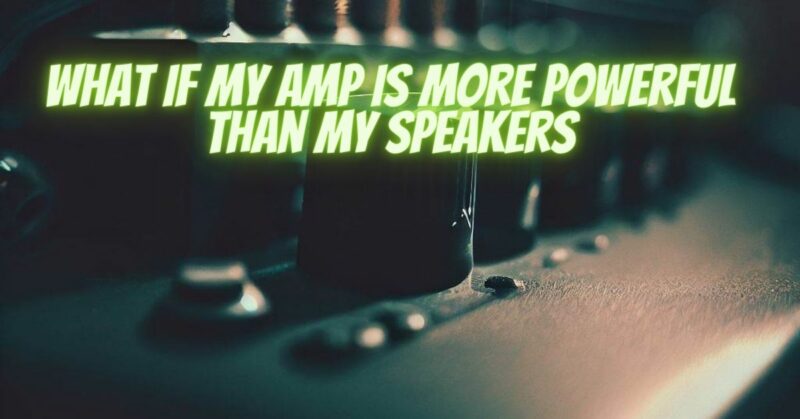The synergy between amplifiers and speakers is pivotal for exceptional audio performance. However, mismatching amplifier power with speaker capabilities can lead to undesirable consequences. In this article, we’ll explore what happens when the amplifier’s power surpasses that of the speakers, shedding light on potential outcomes and the importance of careful power matching.
Understanding the Power Mismatch
Amplifiers provide the necessary power to drive speakers and produce sound. The wattage rating of both the amplifier and the speakers should ideally be aligned to ensure that the speaker’s power handling isn’t exceeded.
Overpowering the Speakers
When an amplifier delivers more power than the speakers can handle, several issues can arise:
- Distortion: The speakers may distort or produce harsh, clipped sound due to the excessive power input.
- Voice Coil Damage: High-powered amplifiers can cause the voice coils in speakers to overheat and potentially burn out. This can lead to irreversible damage.
- Cone Damage: Excessive power can cause the speaker cones to flex beyond their design limits, leading to deformation and reduced audio quality.
- Component Stress: Continuously operating at high power levels strains speaker components, reducing their longevity and reliability.
- Reduced Sound Quality: The overall sound quality might suffer due to the mismatch between the speakers’ capabilities and the amplifier’s power.
Risk of Permanent Damage
Overpowering speakers can lead to permanent damage that requires replacement or repair. This not only incurs additional costs but also disrupts your audio experience.
Addressing the Issue
- Matching Power Ratings: Ensure that the amplifier’s power output matches or slightly exceeds the speaker’s power handling to prevent overpowering.
- Clean Headroom: Aim for clean headroom by choosing an amplifier with around 1.25 to 1.5 times the speaker’s power handling. This allows for dynamic peaks without distortion.
- Speaker Upgrades: If your amplifier’s power exceeds the speakers’ capabilities, consider upgrading to speakers with higher power handling to maintain a balanced setup.
The consequences of using an amplifier with more power than the speakers can handle are detrimental to both sound quality and equipment durability. Overpowering can lead to distortion, voice coil damage, cone deformation, and compromised sound quality. To ensure an optimal audio experience, it’s vital to match the amplifier’s power output to the speaker’s power handling. This power harmony not only safeguards your speakers but also delivers the accurate, undistorted sound that the music deserves. Remember, a balanced power match ensures that your audio journey remains rich, immersive, and free from potentially costly damage.


